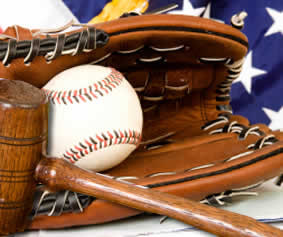
Player Representatives and Contract Administrators
The professional sports world has no shortage of pro athletes, which currently play in five major league organizations throughout the United States. Even amateur and semi-professional athletes often require an attorney as they negotiate salaries and other information. In this role, the attorney is charged with acting in the player’s best legal interest over their long course of their professional sports career. They’ll read over team contracts, free agency agreements, salary agreements, and virtually any other binding or legal document that might have far-reaching legal implications at a later time.
Player attorneys will also be the go-to resource for any athletes who find themselves in hot water after questionable behavior, an on-the-field fight, or even in divorce proceedings. For this reason, sports attorneys considering this line of work should be familiar with all types of law, particularly contract, criminal, and family law, and estate planning.
Team Lawyers and Legal Advisors
Just like players, today’s professional and semi-professional teams need someone who can advise them on legal issues and potential legal pitfalls. Sports law often sees each professional team maintain an active legal department within a traditional management structure. Attorneys will be responsible for crafting the team’s player and vendor contracts, as well as any employment contracts if contracted work is the method preferred for the organization. If a fan or player sues the team, the responsibility for defending the team’s actions will fall to the legal department or a single sports lawyer.
Sports lawyers will also deal in a great deal of liability issues within the organization. This includes the safety and accessibility of a sports stadium, but also the liability issues that arise from player contact and on-the-field accidents. Their ability to read and understand liability law and precedent will be an asset to their sports employer over time.
Work with High Schools, Colleges, or State Agencies
Many sports lawyers actually work in the public sector, where they draft laws relating to high school sports safety and season lengths, college sports funding, safety and scholarship laws, and many other factors that uniquely affect sports in the academic world. While many attorneys work for state government or local municipalities in this capacity, others pursue work with colleges or high schools where they can advise on how to implement or adhere to laws governing sports seasons, safety regulations, coaching requirements, training, or any other considerations necessary to fall in line with state statutes.
Related Resource: MBA in Sports Management
Excellent Opportunities for the Sports Lawyer in Today’s Economy
Sports law is growing rapidly, driven largely by the ascendance of college sports and major media contracts even from high school teams. According to the American Bar Association, the growing number of jobs available in sports law can see attorneys working for state agencies, professional teams, or even high school athletic departments.
Related Resources: